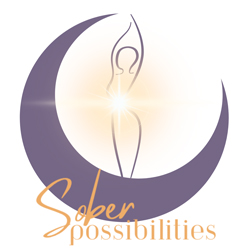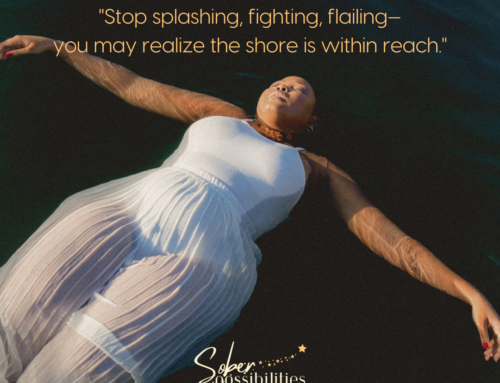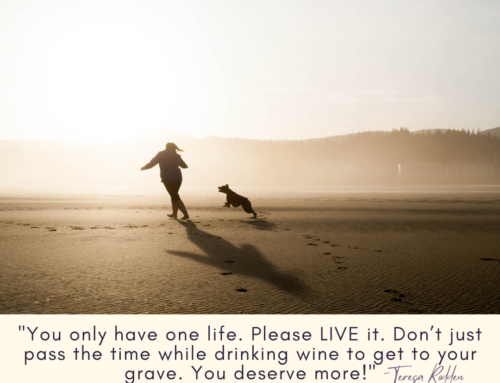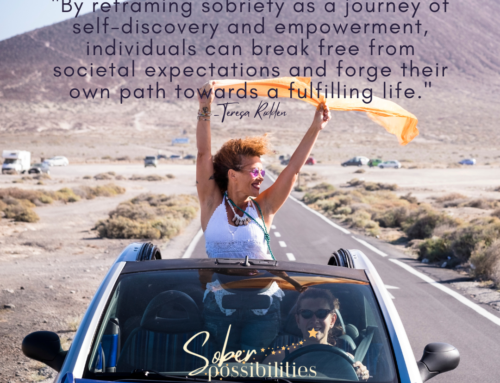Do we, as a society, have an addiction to the recovery tradition of Alcoholics Anonymous, Twelve-Steps, and believing all drinking problems are due to a disease?
“Alcoholics can’t stop. They can never stop, not on their own.”
“Recovery is what you do for the rest of your life.”
“She was gripped with the disease. It was all-consuming. That’s what killed her.”
These phrases are from a documentary made several years ago. It’s about a woman who kept drinking despite her being a member of the most revered addiction support group, Alcoholics Anonymous. She attended meetings, connected with a sponsor, and did step work. She died as a result of her drinking.
“Can’t do it on your own, you will die, forever fight the disease” is the same messaging I heard while in AA over sixteen years ago. But it’s not just AA. It’s many, if not most, of the spin-off twelve-step communities and treatment centers.
These statements are part of the recovery tradition, and they play on a loop in every meeting, publication, and broadcast.
Ask most people, what would you say to a friend or loved one that you thought had a drinking or drug problem? The majority would probably suggest an AA meeting.
If you talk to your doctor about your concern, they will do one of two things refer you to treatment or hand you a pamphlet. Some like my husband’s doctor will label you before even assessing you. His doctor asked how much he drank, and Rich replied, I stopped drinking sixteen years ago. Oh, you’re an alcoholic, was his doctor’s assumption.
Our culture’s recovery tradition is to label, place in a one-size-fits-all box, and put on the recovery ready conveyor belt.
Indoctrination
When I went to outpatient treatment in 2003, one of our facilitators was against AA, and the other was for it. But what was striking was every person that was in treatment with me was a member of AA, and this was their second, third, and more time of being in treatment. I didn’t attend AA until I had been abstinent for two months. And that was under the constant pressure of my then-boyfriend. It was hard to manage me when he didn’t know what I was saying and learning in the treatment center.
I would find AA was the next level indoctrination of the recovery tradition. Here is where the phrases I opened this article with were on a loop at every meeting, and it is strongly suggested that you go to ninety meetings in ninety days, or you may die. I went to over one hundred. Here is where I learned that the disease was getting stronger, no matter how long I abstained. Here is where I learned I couldn’t do it by myself and that I would have to attend meetings, work the steps, read the big book, and have a sponsor for the rest of my life. Hello, my name is Teresa, and I’m an alcoholic. This was my new normal, my new identity.
Recovery tradition
You have a concern.
You reach out for support.
Support comes in the form of treatment or AA or twelve-step meetings which are easily accessible and free. (it’s reported that upward of ninety percent of our treatment centers are twelve-step based.)
You receive the diagnosis of Alcoholism, Addiction, Substance Use Disorder, or Alcohol Use Disorder, all of which
is a chronic brain disease.
Alcoholics Anonymous/Twelve Steps is not only part of treatment, but it’s also the recommended aftercare.
Prognosis is a lifetime of managing your disease.
Addiction to recovery tradition
Let’s start with a dictionary definition of addiction.
physically and mentally dependent on a particular substance (thing, or activity) and unable to stop taking it without incurring adverse effects.
Similar: dependent on, abusing in the habit of using, dependent, obsessive, obsessional, hooked on, jonesing on/for
Every person I was in treatment with had been fighting their “disease” for years doing the same thing over and over; go to treatment, attend AA meetings, get a sponsor, work the steps, drink or use, and start over. With every failed attempt, confidence fades.
During the covid-19 pandemic, people were still gathering because they “needed” a meeting against the request of medical experts and government officials to reduce the risk of spreading the infection. “Don’t die by the disease that you do have by avoiding the disease that you don’t have” is one of the many messages suggesting a meeting takes precedence over public safety.
You hear about celebrities in and out of treatment, and many who have died after having recently attended a twelve-step rehab.
I know they say it’s the disease, but why are we so quick to accept that? Why are we not questioning the traditional recovery protocol?
Addiction treatment is an industry where failure is accepted because relapse is expected, and part of the recovery tradition. The traditional model of recovery is never-ending.
People keep coming back, and governing agencies continue to promote regardless of the adverse effects and recidivism.
Is our culture’s addiction to recovery tradition like all other addictions, incurable?
No. Because there are more and more doctors, scientists, and reformers that challenge the chronic brain disease model.
Imagine if the science and research that Dr. Lewis, Dr. Peele, Dr. Dodes, and so many others have documented were equally considered in treatment protocol and used to design more modern approaches for recovery support?
Neuroscience
While in outpatient treatment, I abstained for two months, and my biggest challenge, a challenge for most people I talk to, is breaking the association with beer thirty, people, places, and activities.
A nice spring day reminds you of barbecuing and having a beer. Ding, it rings the recall feature in your brain.
My sister comes over after work on Friday night. Ding.
I just finished a stressful day at work. Ding.
The ex is being difficult. Ding.
And once these recall bells ring, it starts what the neuroscientist Marc Lewis calls the feedback loop.
If the feedback loop is not intentionally interrupted, you will continue to cycle through memory lane, stoking the desire with every pass, and your resistance grows weaker, causing decision fatigue. You simply wear yourself out, trying to resist the urge to take a drink or use.
With time, intention, and practice, you can become aware of this cycle and develop strategies to disengage the thought pattern. Redirect your energy and focus.
But this is not part of the recovery tradition. This is neuroscience.
Having other possibilities to explore
There are many nontraditional options available that range from books, support groups, coaching, therapies, and programs that help people take their life back.
We need to break the addiction to recovery tradition and level the field with alternatives that are backed by science and have evidence to support their methods.
Rich was in and out of AA for almost twenty years. He knew the talk, steps, and program perfectly but never found peace and freedom. It took a few years into sobriety before the automatic responses and thought tracks of traditional recovery, “I need a meeting, and my disease is waiting for me,” to subside. He left AA in 2004 and hasn’t had a drink for almost seventeen years. He broke the addiction, to traditional recovery and alcohol, by not incessantly talking about his past, disease, alcohol, and powerlessness. He got on with his life.
There is nontraditional addiction support available. Look for it.






Leave A Comment
You must be logged in to post a comment.